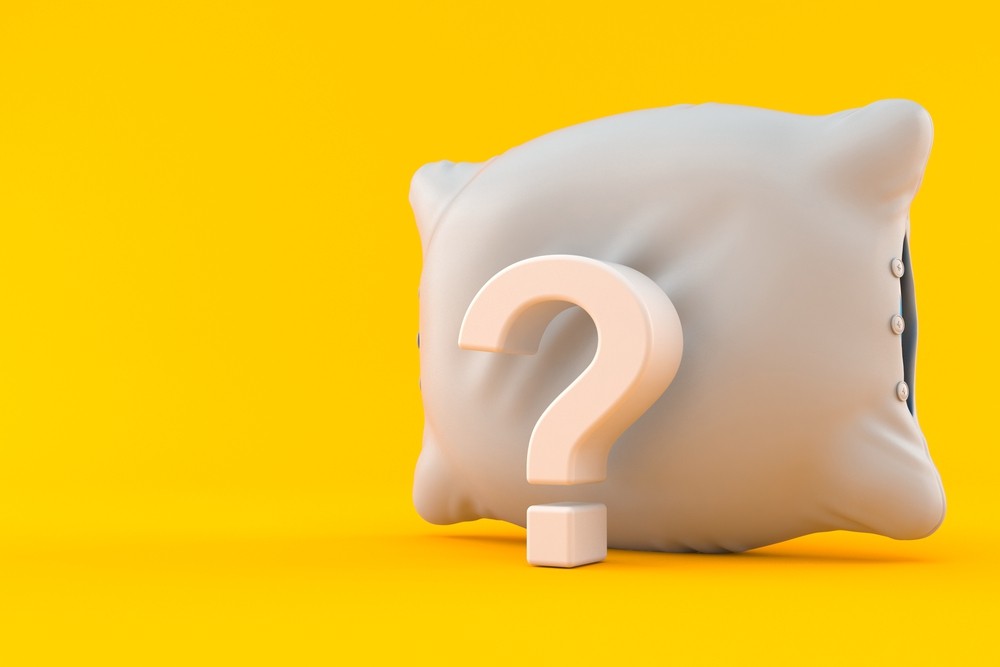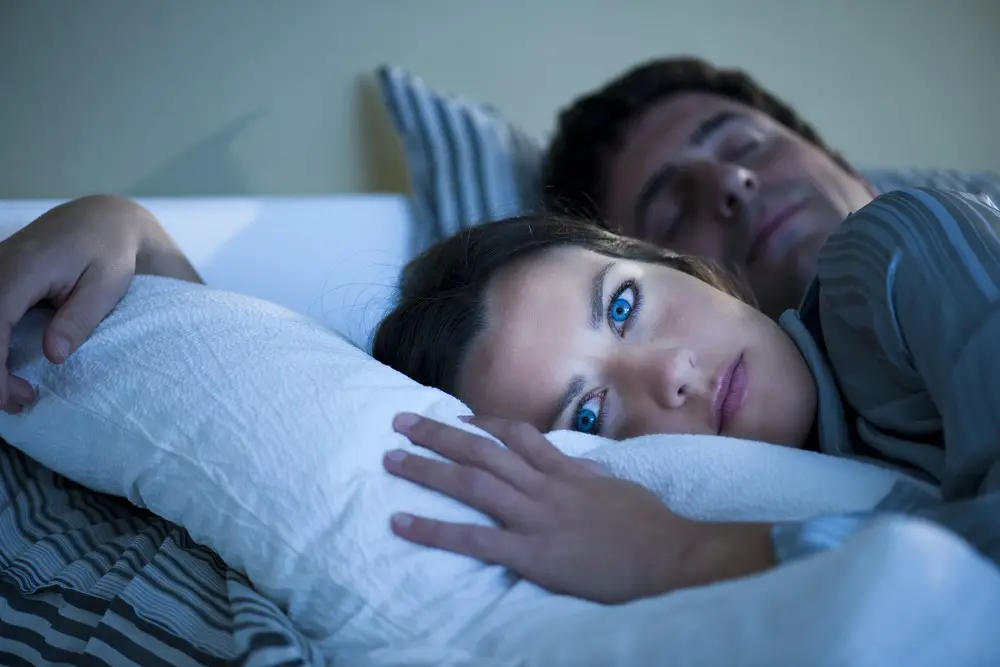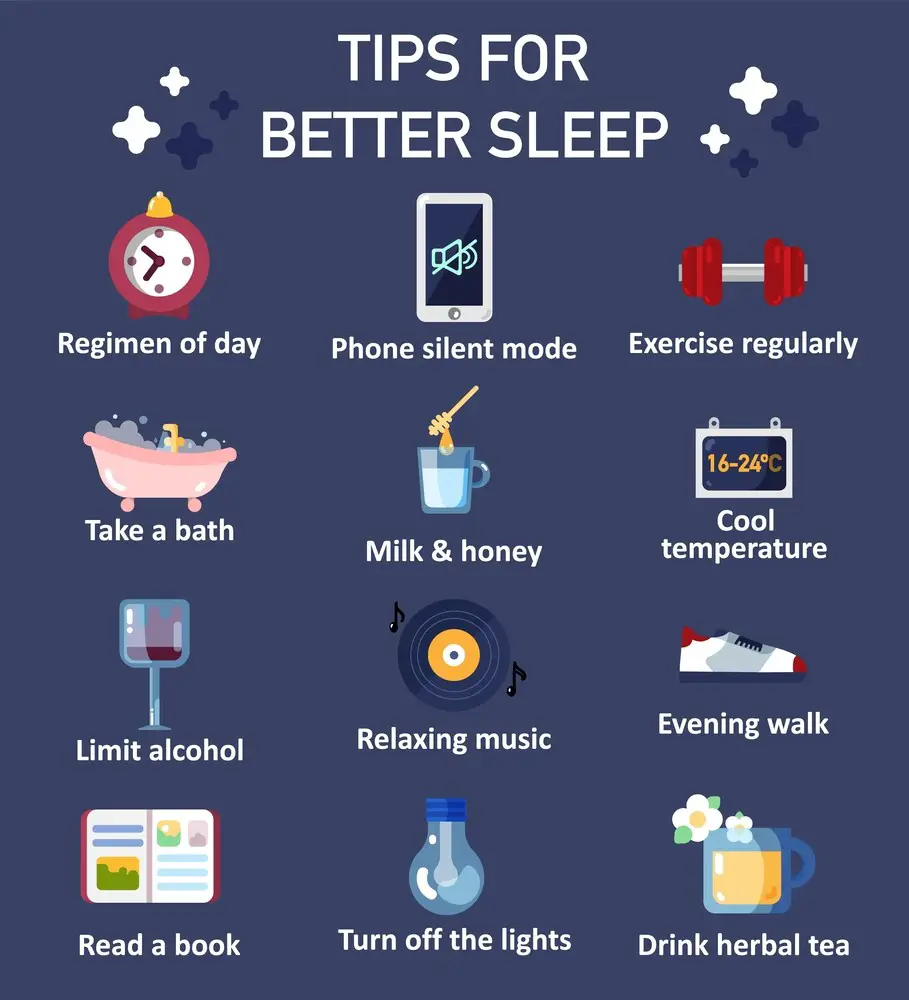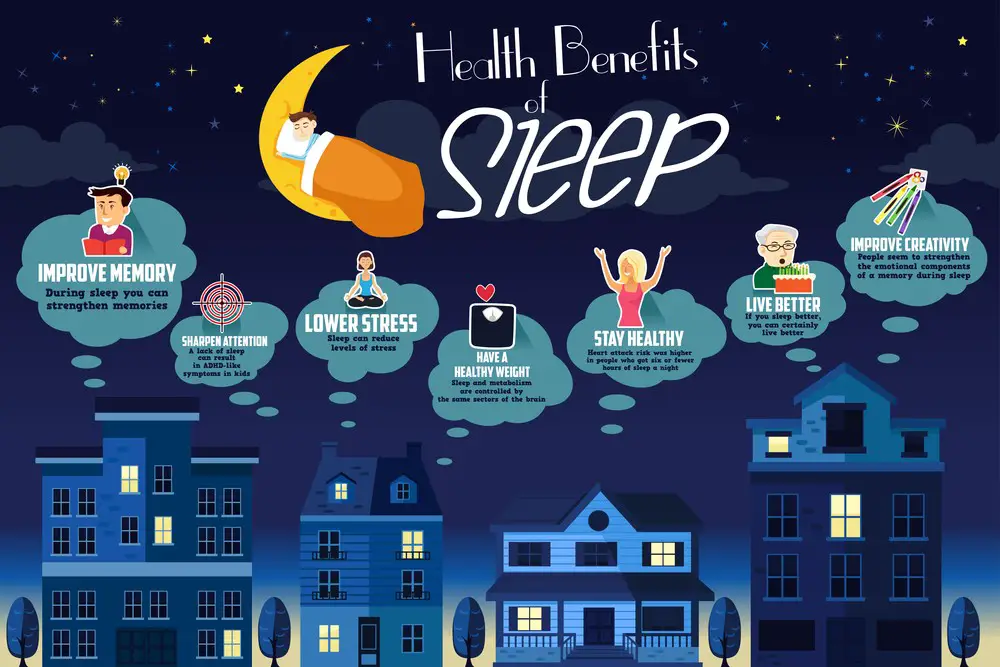Are you struggling to fall asleep after engaging in sexual activity? You are not alone. Many people experience difficulty sleeping after sex, and it turns out, there could be various reasons for this common phenomenon. In this article, we will explore the possible explanations for why some individuals have trouble falling asleep after an intimate encounter with their partner.
Sex and sleep are both essential components of a person’s overall health, having a profound effect on their emotional well-being, relationships, and quality of life. Along with a thorough understanding of these two crucial aspects, it is essential to recognize that each person’s experience may differ significantly from others. It may be due to a combination of factors like lifestyle, habits, or even certain medical conditions that can contribute to post-sex insomnia.
Ongoing research to better understand the interplay between sex and sleep and how these components affect different individuals. While only some potential causes of sleep disruption after sex are widely known, it is crucial to recognize that this phenomenon does not make you abnormal, and various solutions may help you achieve better sleep after engaging in sexual activities.
Key Takeaways
- Sleep disturbances after sex can result from several factors, including lifestyle, habits, and medical conditions.
- Sex and sleep are essential components of overall health and can affect emotional well-being, relationships, and quality of life.
- Ongoing research explores the relationship between sex and sleep, with potential solutions available to help improve sleep after engaging in sexual activities.

Understanding Sex and Sleep
When it comes to sex and sleep, there’s more going on than meets the eye. While sexual intercourse can bring many emotional and physical benefits, like increased intimacy and reduced stress, it can also have some unexpected effects on your ability to sleep.
Men and women alike often experience similar challenges with falling asleep after sex. Many factors can contribute to this difficulty, such as the release of hormones and heightened emotions from sexual activity.
One of the essential aspects of sexual health is balancing hormones and maintaining your emotional well-being. Sex produces a cocktail of hormones, like endorphins, oxytocin, and serotonin, which can all aid in relaxation and create a sense of well-being. However, sex can also release adrenaline and other alertness-enhancing hormones, which may disrupt sleep.
Several sleep-related disorders may also affect your ability to sleep after participating in sexual activities. These include sexsomnia, a parasomnia characterized by engaging in sexual behaviors while asleep or in the transitional state between deep sleep and wakefulness. Behaviors associated with sexsomnia include fondling, masturbation, and even sexual aggression.
Cuddling after sex can help strengthen your emotional connection with your partner, and it serves a practical purpose: It helps your body to release more oxytocin. This hormone can make you feel sleepy and at ease. Thus, incorporating cuddling into your routine can improve sleep quality following intimacy.
In conclusion, navigating sleep and sex in a relationship entails a delicate balance of addressing your emotions, managing hormones, and understanding any underlying sleep disorders. By recognizing these factors and discussing your needs, you and your partner can work toward a healthier and more satisfying sexual and sleep routine. Key takeaway: Knowing how sexual intercourse affects sleep can help you better understand your body and address any potential issues.
Common Reasons for Sleep Disruption After Sex
There are several reasons why some people may struggle to fall asleep after sex. Let’s explore some common factors that could contribute to sleep disruption after sexual activity.
- Stress and Anxiety: Sometimes, stress and anxiety can affect your ability to sleep, even after satisfying sexual experiences. If your mind is preoccupied with work, family, or relationship concerns, it might prevent you from relaxing and drifting off to sleep.
- Orgasm and Hormone Levels: Releasing hormones during orgasm can impact your sleep. While oxytocin and prolactin promote relaxation and sleepiness, releasing dopamine and norepinephrine can have a stimulating effect—potentially making it harder for you to fall asleep after sex.
- Depression and Other Mental Health Disorders: Depression and other mental health issues can influence your sleep. If you’re dealing with emotional challenges, it’s possible that these factors could disrupt your sleep even after engaging in sexual activities.
- Alcohol Consumption: Alcohol often goes hand-in-hand with sex for some people. Although it may help lower inhibitions and enhance the experience initially, drinking alcohol before bedtime can disrupt your sleep cycles, making it more difficult to fall asleep or stay asleep throughout the night.
- Pelvic Thrusting and Physical Exertion: Intense physical activity during sex, such as vigorous thrusting or extended sessions, can raise your heart rate and increase alertness. After engaging in these activities, it might take time for your body to wind down and relax before sleep can occur.
- Shift Work and Sleep Schedules: Your internal clock may be out of sync for those who work irregular hours, such as night-shift workers. This disruption to your sleep schedule could make it challenging to fall asleep after sex, even if you’re exhausted from the day’s activities.
- Emotional Factors: Strong emotions—whether positive or negative—can disturb your sleep. In the context of sex, feelings of intimacy, excitement, or even guilt might make it difficult for you to drift off into a peaceful slumber.
In summary, be mindful of these factors if you struggle to fall asleep after sex. By addressing the causes of sleep disruption, you can improve the quality of your sleep and overall well-being.
Medical Conditions and Disorders Related to Sleep After Sex
Several health conditions and sleep disorders can affect your ability to fall asleep or stay asleep after engaging in sexual activities. Some of these include:
- Sleep apnea: This common sleep disorder involves repeated pauses in breathing during sleep, often causing you to wake up frequently. Sleep apnea can make it difficult to fall asleep after sexual activities, disrupting your normal sleep patterns.
- Restless legs syndrome (RLS): If you experience an uncomfortable sensation in your legs, especially at night while lying in bed, you may have RLS. This can make it challenging to relax and sleep after sex.
- Parasomnias: These are unusual behaviors during sleep, such as sleepwalking, night terrors, and sexsomnia. If you display symptoms of sexsomnia, where you engage in sexual activities while asleep, it can interfere with your ability to fall asleep after sex.
- Sleep-related dissociative disorder: This condition involves a disconnect between your conscious mind and your actions during sleep. It could cause memory lapses or difficulty falling asleep after sexual activities.
- Chronic insomnia: A long-term inability to fall asleep or stay asleep could make it even more challenging to do so after engaging in sexual activities. Various factors, including other underlying medical conditions, stress, and lifestyle habits, can cause insomnia.
- Medical conditions: Certain health issues, such as cancer, diabetes, and gastroesophageal reflux disease (GERD), can also impact your ability to sleep. If you’re dealing with any of these concerns, they might contribute to difficulty sleeping after sex.
In summary, multiple medical conditions and sleep disorders can cause issues when sleeping after engaging in sexual activities. If you suspect that you have any of these conditions, it’s essential to consult a healthcare professional for advice and possible treatment options. So, keep in mind that maintaining good sleep hygiene and addressing any underlying health concerns can help improve the quality of your sleep after sex.
Impact of Lifestyle and Habits on Sleep After Sex
Your lifestyle and habits play a crucial role in determining the quality of sleep you get after engaging in sexual activities. To better understand how these factors affect your sleep, let’s examine some key aspects of your daily life.
Hygiene and Masturbation: Maintaining proper hygiene can positively impact your sleep after sex. A clean and fresh environment makes relaxing and drifting off to sleep easier. On the other hand, engaging in masturbation before bedtime can help release tension and induce sleepiness. This is especially true for men, as the release of prolactin, a hormone produced after orgasm, can contribute to feelings of drowsiness.
Medications: Some medications may affect your ability to fall asleep after sex. For instance, certain antidepressants and pain relievers can disrupt your sleep patterns, while others, like sleep aids or anti-anxiety medications, can help you doze off. It’s essential to consult with your healthcare provider to determine how your medications might impact your sleep.
TV and Screen Time: Watching TV or using electronic devices right before or after sex can stimulate your brain and make it more challenging to fall asleep. The blue light emitted from screens may suppress melatonin production, a hormone that regulates sleep. To improve your chances of drifting off after sex, try limiting screen time in the evening and establish a relaxing bedtime routine.
Lifestyle Changes: Implementing some simple lifestyle changes can significantly impact your ability to sleep after sex. Practicing regular exercise, adhering to a consistent sleep schedule, and creating a comfortable sleep environment can improve sleep quality. Additionally, avoid caffeine, nicotine, and other stimulants in the evening, as they can make it more difficult to fall asleep.
Naps and Daytime Sleep: While naps can be a helpful way to recharge, taking long or late-afternoon naps may interfere with your sleep, particularly after engaging in sexual activities. Aim for shorter power naps or schedule them earlier in the day to avoid disrupting your sleep patterns.
Caffeine and Heartburn: Consuming caffeine too close to bedtime or eating spicy or fatty foods before sex can lead to heartburn, making it harder to fall asleep after engaging in sexual activities. To minimize heartburn, consider reducing caffeine, consuming smaller meals, and avoiding heavy or spicy foods before bedtime.
Incorporating these practices into your daily routine can positively impact your ability to sleep after sex, promoting overall well-being and a healthy sleep routine.
Studying Sleep After Sex
It’s not uncommon for some people to have difficulty falling asleep after engaging in sexual activity. To better understand this phenomenon, various sleep centers and research institutions, such as the Mayo Clinic, have conducted studies and made advancements in addressing this issue.
One approach to studying sleep after sex involves polysomnography, a sleep study used by sleep centers to measure and record your brain waves, heart rate, and breathing, among other things. Polysomnography can provide insights into sleep patterns and potential causes of sleep disruptions related to sexual activity.
Sleep specialists and neurologists also work to understand the relationship between sex and sleep. They believe that hormones released during sex, such as oxytocin and prolactin, may play a role in sleep, explaining why some people find it challenging to drift off after intimacy. Oxytocin, also known as the “cuddle hormone,” can help promote relaxation, while prolactin stimulates feelings of sleepiness.
To expand our understanding of sleep after sex, researchers continue to make advancements in evaluating sleep quality and related factors. Some strategies they employ include:
- Examining the impact of different sexual activities or intensity levels on subsequent sleep quality
- Analyzing the effects of the timing of sexual activity about bedtime
- Investigating how factors such as age and overall health influence your ability to fall asleep after sex.
Through these studies and research advancements, sleep specialists are better equipped to advise you on strategies to improve your sleep quality, even if you’re having trouble dozing off after intimate moments. Remember, professional assistance is always recommended if you’re experiencing persistent sleep disruptions, regardless of their cause.
 Diagnosis and Treatment of Sleep Problems After Sex
Diagnosis and Treatment of Sleep Problems After Sex
Having trouble sleeping after sex can be frustrating and affect your quality of life. To address this issue, it’s important to identify the underlying causes and find appropriate treatments. Here are some steps you can take:
1. Diagnosis
Consulting a medical professional is essential for accurate diagnosis. Doctors may conduct a physical examination, evaluate your sleep patterns, and determine if you’re experiencing fatigue for other reasons. They might also consider whether you suffer from sexsomnia—a sleep disorder causing sexual behaviors during sleep—as its management might differ from typical sleep issues.
2. Consider Aging Factors
As you age, changes in sex hormone levels could be one reason you’re experiencing poor sleep after sex. Remember that every individual will experience the aging process differently, so discussing your concerns with your healthcare provider is crucial.
3. Sleep Hygiene
Focusing on sleep hygiene can significantly improve your sleep quality. Try these strategies:
- Establish a consistent sleep schedule
- Keep your bedroom cool, dark, and quiet
- Limit caffeine and alcohol consumption in the evening
- Avoid using electronic devices before bedtime
4. Medication Adjustment
If you’re taking medications that might interfere with your sleep, consult your doctor about adjusting the dosage or trying alternative treatments.
5. Sleep Apnea Treatment
Sleep apnea can also disrupt your sleep, and addressing this issue may help. Continuous Positive Airway Pressure (CPAP) machines and mandibular advancement devices are common treatment options.
6. Treatment for Sexsomnia
If sexsomnia is the cause of your sleep problems after sex, your healthcare provider will guide you through specialized treatments tailored to your specific needs.
Remember, tackling your sleep issues after sex can be a complex process, but by working with healthcare professionals and implementing recommended strategies, you can improve your sleep and overall well-being.
 Behavior Modification and Support
Behavior Modification and Support
It’s essential to address any factors that might be causing sleep difficulties after sex. Here are some suggestions to help you improve your sleep and overall well-being:
- Counseling: If you find that emotional or psychological issues contribute to your inability to sleep after sex, consider seeking professional counseling. A trained therapist can help you identify triggers and offer coping strategies.
- Conversation: Open communication with your partner can help address any concerns or anxieties affecting your sleep. Discuss your feelings, and try to find solutions together.
- Managing Health: Maintaining good overall health can improve your sleep quality. Regular exercise, a balanced diet, and managing current health issues can improve sleep after sex.
- Relaxation Techniques: Engage in relaxing activities like calming music or practicing mindfulness meditation to help ease your mind and body before sleeping.
- Separate Room: Sometimes, sleeping in separate rooms may be necessary for a better night’s rest. This can help create a more conducive sleep environment and promote safety for both partners.
Remember that every individual is different, and finding the best approach for your situation may require some trial and error. Be patient and willing to explore strategies to determine what works best for you.
 Helpful Information and Resources
Helpful Information and Resources
If you’re struggling to sleep after sex, several factors must be considered. Here are some helpful tips and insights to improve your post-sex slumber.
- Hormones matter: Sex can lead to releasing hormones, such as oxytocin and prolactin, which may induce relaxing feelings and reduce stress. However, everyone’s hormonal response can differ; for some, the induced emotions might keep them awake instead of feeling drowsy.
- Individual differences: Similar to people’s unique sleeping habits, your body’s response to sex may vary. It’s essential to listen to your body and determine what factors keep you awake after sex, like overstimulation or emotional arousal.
- Creating a sleep-friendly environment can significantly help improve your chances of falling asleep after sex. Make sure to:
- Maintaining a consistent sleep schedule allows your body to develop a natural routine.
- Keep your bedroom cool, dark, and comfortable.
- Limit exposure to electronic devices or screens at least an hour before bedtime.
- Practice relaxation techniques like deep breathing, meditation, or reading a book.
- Communicate with your partner: Share your concerns and experiences with your partner. They might be experiencing a similar issue or have insights on improving your mutual sleep quality. Open and honest communication can lead to a better understanding of each other’s needs and potential solutions.
Remember, your priority should be maintaining a healthy balance between your sex life and sleep habits. Acknowledging your body’s response, communicating with your partner, and implementing practical changes in your routine can gradually improve your post-sex sleep experience.
Frequently Asked Questions

Why do I feel awake instead of tired after sex?
It is common to feel energized after sex as sexual activity releases endorphins, which can help elevate your mood and make you feel more awake. Additionally, the physiological changes during sex, such as increased heart rate and blood flow, can contribute to feeling more awake instead of tired.
Is it normal to experience insomnia after intercourse?
Experiencing insomnia after sex is not uncommon, especially if you’re highly sensitive to hormonal changes or adrenaline release. Stress and anxiety related to sexual performance or relationships can also contribute to this phenomenon.
What factors can cause difficulty sleeping post-sex?
Several factors can cause difficulty sleeping after sex, including:
- Hormonal changes triggered by sex
- Adrenaline release during sexual activity
- Anxiety or stress related to sexual performance
- Relationship stress or unresolved issues with your partner
- Sensitivity to physiological changes during arousal
- Overstimulation from engaging in sex too close to bedtime
Can hormones affect sleep after sexual activity?
Yes, hormones released during sexual activity, such as oxytocin and prolactin, can affect sleep. Oxytocin, known as the “love hormone,” can promote relaxation, while prolactin might make you drowsy. However, these effects can vary from person to person.
How does adrenaline play a role in staying awake after sex?
Adrenaline is released during sexual activity, increasing your heart rate and blood flow, leading to heightened arousal. This might make it difficult to relax and fall asleep immediately after sex, especially if you’re already prone to insomnia or have a sensitive sleep cycle.
Are there any recommended relaxation techniques to help sleep post-sex?
Some relaxation techniques to help you sleep after sex include:
- Deep, slow breathing exercises
- Muscle relaxation techniques to release tension in your body
- Practicing mindfulness or meditation
- Listening to soothing music or sleep-inducing sounds
- Engaging in calming activities, such as reading or gentle stretches, before going to bed
- Creating a sleep-friendly environment by adjusting the room temperature, lighting, and noise levels
Remember that finding what works best for you and your partner is essential, as everyone’s sleep preferences and needs can vary significantly.
- How to Win Sleep Apnea VA Claim: Insider Tips and Steps - February 14, 2024
- Emotional Support Goat: A Guide to Healing Companions - February 14, 2024
- Alteril Sleep Aid: Your Trusted Solution for A Peaceful Night’s Sleep - February 14, 2024
This site contains affiliate links to products. We will receive a commission for purchases made through these links.


 Diagnosis and Treatment of Sleep Problems After Sex
Diagnosis and Treatment of Sleep Problems After Sex Behavior Modification and Support
Behavior Modification and Support Helpful Information and Resources
Helpful Information and Resources

